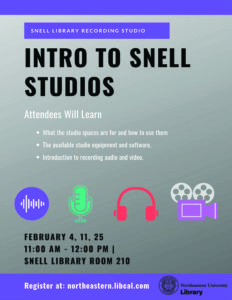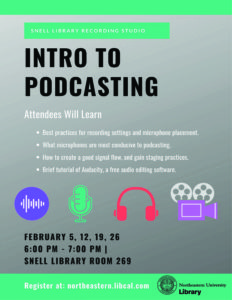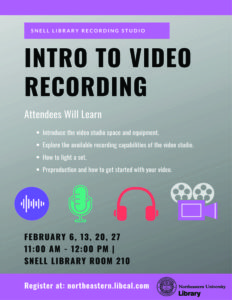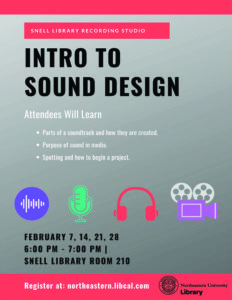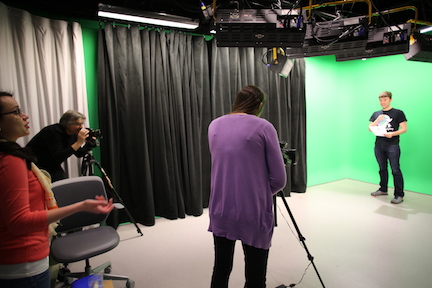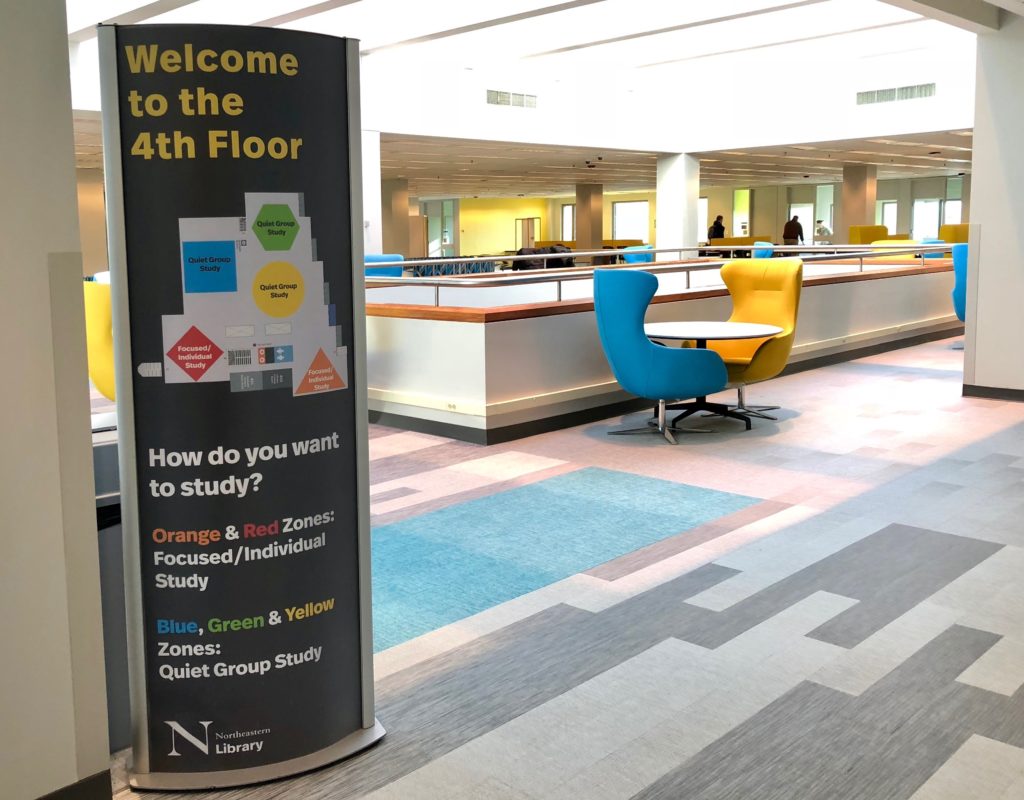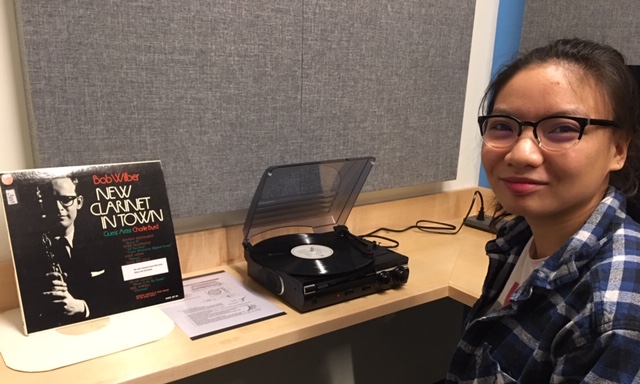Finals. Everyone’s favorite time of year. We love it as much as you do. Your friends at Snell Library and the Curry Student Center want you to know you’re not alone and to take some time to take a step back from all the end of semester craziness to de-stress. To help you achieve that, we will have:
Thursday, December 6th to Wednesday, December 12th: Coloring table, Legos, madlibs, and bubble wrap to pop in Snell’s Lobby
Thursday, December 6 at 3pm: Zooniverse activity in Snell’s Lobby – count penguins and more!
Sunday, December 9 at 7pm: Movie night in Snell Library, Room 90
Tuesday, December 11th at 1PM: therapy dog at Snell Library
Tuesday, December 11th at 5PM: pop up “study break” with coffee and snacks in Snell Library
Throughout all of Finals Week, be on the lookout for giveaways, free coffee study breaks, and positive sentiments from library staff!
We love that you love to study in Snell but we understand that sometimes more space is needed. So, our friends at the Curry Student Center have reserved some rooms for you for finals week study.
From 7:30AM to 2AM, rooms 333, 334, 335, 336, and 342 will be open for quiet study. Room 340 will be open for collaborative study.
What’s Poppin’ will also be open for study 9AM to 9PM Monday through Thursday and 9Am to 5PM on Friday.
In addition to extra study space, our friends at Curry will be giving away chocolate covered coffee beans daily at Campus Crossroads as well as:
Thursday, December 6th/Reading Day: Starbucks Nitro at 9PM in the indoor quad until it runs out
Friday, December 7th: Hot Chocolate Bar at Campus Crossroads 11am until it runs out
Saturday, December 8th: Free Starbucks Nitro at 7PM in the indoor quad until it runs out
Monday, December 10th: chocolate covered coffee beans and stress relief activity: make your own buttons.
Tuesday, December 11th: chocolate covered coffee beans and stress relief activity: make your own buttons.
From all of us here at Snell Library and Curry Student Center, we wish you the best of luck on your finals!
